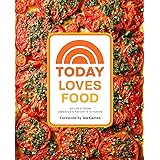The world of plant-based milks can be surprisingly complex, with popular choices often masking ingredients you might rather avoid. For instance, did you know that a single cup of some “original” almond milks can contain around seven grams of added cane sugar, which is just shy of two teaspoons? This staggering amount often goes unnoticed by consumers diligently seeking healthier alternatives to traditional dairy. The video above offers a critical look at many popular non-dairy options, highlighting common pitfalls and revealing which brands truly deliver on their promise of clean ingredients.
When you walk down the grocery store aisle, the sheer volume of choices for plant-based milks—from oat to almond, soy, pea, and more—can be overwhelming. Many consumers switch to these alternatives for health reasons, but without careful label scrutiny, they might inadvertently be consuming highly processed ingredients that counteract their wellness goals. This deep dive expands on the insights shared in the video, providing a comprehensive guide to understanding what makes a truly healthy plant-based milk and what hidden dangers to watch out for.
The Oat Milk Dilemma: Navigating Popular Choices
Oat milk has surged in popularity, becoming a staple in coffee shops and home kitchens alike. However, not all oat milks are created equal. Take Oatly, for example, a brand often lauded for its creamy texture. A closer look at its ingredient list reveals low-erucic acid rapeseed oil, commonly known as canola oil. This oil is frequently derived from genetically modified (GMO) crops and undergoes extensive processing, which can lead to inflammation and oxidative stress in the body. Manufacturers include it to provide a desirable mouthfeel and reduce the amount of more expensive oats or almonds, cutting costs at the expense of your health.
While Oatly does deserve credit for using glyphosate-free oats—an important consideration given glyphosate is the active ingredient in Roundup and a known carcinogen—the presence of canola oil still makes many health-conscious consumers wary. Glyphosate-free certification means the oats haven’t been sprayed with this controversial herbicide, reducing potential chemical exposure. However, the inflammatory oils negate some of these benefits. If you’re a devoted Oatly fan, the “low-fat” version is a better choice, as it significantly reduces or eliminates the problematic rapeseed oil. This compromise still isn’t ideal, but it’s a step in the right direction.
Finding Premium Oat Milk Options
For those committed to truly clean eating, several premium oat milk brands stand out. Malk Oat Milk, Three Trees Oat & Seed, and Elmhurst Milked Oats are consistently recommended for their minimalist and transparent ingredient lists. These brands proudly declare themselves glyphosate-free and, crucially, contain no gums, no oils, and no emulsifiers. When these artificial thickeners and fats are omitted, manufacturers must use more actual oats or seeds, resulting in a naturally richer, creamier texture and superior nutritional profile. This commitment to quality ingredients makes a tangible difference in both taste and health benefits.
An emerging leader in the clean plant-based milk space is Kiki Milk. This organic, glyphosate-free, oat-based beverage goes above and beyond by incorporating sprouted pumpkin seeds, coconut milk, and aquamin. Sprouted seeds enhance nutrient bioavailability, while aquamin provides a natural source of trace minerals. Kiki Milk’s dedication to nutrient density and purity sets a high bar, offering both regular and chocolate varieties that are exceptionally clean and beneficial. Though currently primarily available online, this brand exemplifies the future of healthy plant-based beverages.
Decoding Almond Milk Labels: Sugar, Gums, and “Natural Flavors”
Almond milk, another popular dairy alternative, also comes with its own set of ingredient challenges. A major red flag for any plant-based milk is the inclusion of “natural flavors.” This seemingly innocuous term is a catch-all for proprietary blends that can contain dozens of undisclosed chemicals, solvents, and preservatives. These ingredients are often far from “natural” and can be derived from non-natural sources, leading to unknown health implications and potential sensitivities.
Beyond natural flavors, many almond milks are overloaded with gums and emulsifiers such as sunflower lecithin, gellan gum, and locust bean gum. While these additives provide stability and a smooth texture, excessive amounts can disrupt gut health. Studies suggest that certain emulsifiers can negatively impact the gut microbiome, potentially leading to inflammation and digestive issues. This is especially concerning for young children, whose developing digestive systems may be more sensitive to these additives. Consumers seeking the healthiest options should prioritize brands with minimal or no gums.
Sweeteners and Sustainable Choices
Another common issue with almond milk is added sugar. Many “original” or “vanilla” varieties contain significant amounts of cane sugar, sometimes totaling seven grams per serving, equivalent to nearly two teaspoons. This added sugar contributes to empty calories and can lead to blood sugar spikes. Always opt for unsweetened versions to control your sugar intake and truly enjoy the natural flavor of the almonds. Reading the nutrition facts panel carefully for “added sugars” is a simple but crucial step.
For those who use large quantities of almond milk, perhaps for daily smoothies, cost can be a barrier to purchasing premium brands. In such cases, economical options like the Whole Foods organic almond milk or Thrive Market’s brand can be a good compromise. While these might contain one or two minimal gums, they typically avoid inflammatory oils and natural flavors. For premium, completely clean almond milk, Malk and Three Trees again offer excellent choices, with Three Trees even using real vanilla beans instead of ambiguous “natural flavors” in their vanilla varieties. The key is to find a balance that fits your budget without sacrificing your health principles.
Beyond the Usual Suspects: What About NotMilk, Wondermilk, and Pea Milk?
The plant-based milk market continues to innovate, but not all innovations are beneficial. Brands like NotMilk, which aims to mimic dairy milk, often rely on problematic ingredients. Its primary components after water are often sunflower oil, sugar, and natural flavors. Sunflower oil, like canola oil, is a highly processed, inflammatory oil high in omega-6 fatty acids. When consumed in excess, these oils can contribute to systemic inflammation, oxidative stress, and an imbalance in the body’s essential fatty acid ratios. This makes NotMilk an option to approach with caution despite its popularity.
Another brand, Wondermilk, presents concerns with its inclusion of GMO soy protein isolate, sugar, sunflower oil, and natural flavors. Soy protein isolate, even if labeled non-GMO, is often a heavily processed and cheaper form of protein that can be inflammatory for many individuals. It’s often used to boost the protein content of beverages cheaply, but superior alternatives like hemp or pea protein are available in higher-quality products. The combination of inflammatory oils, processed soy, and added sugars makes Wondermilk far from a healthy choice.
Heavy Metals and Hormonal Concerns
Pea milk, while marketed as a high-protein alternative, often contains significant amounts of cane sugar, sunflower oil, synthetic vitamins, natural flavors, and various gums and emulsifiers. Some pea milks can contain a whopping 15 grams of added sugar per carton, equivalent to almost four teaspoons. Beyond the sugar and inflammatory oils, a significant concern with pea milk, and rice milk, is the potential for heavy metal contamination, particularly arsenic. While not all brands will contain high levels, peas and rice are known to absorb heavy metals from the soil, posing a potential health risk with regular consumption.
Soy milk, a long-standing plant-based option, also comes with its own set of considerations. Many experts advise caution due to soy’s potential inflammatory properties, its high omega-6 fatty acid content, and its phytoestrogen compounds. While the science on soy’s estrogenic effects in humans is debated, some individuals prefer to avoid it due to concerns about hormonal balance. Given the array of cleaner, less controversial plant-based milk options available today, carefully evaluating soy milk’s role in your diet is prudent.
Your Guide to Smarter Plant-Based Milk Choices
Navigating the plant-based milk aisle requires vigilance and an understanding of key ingredients. To make the best choices for your health, always prioritize brands that feature short, recognizable ingredient lists. Actively seek out products that are explicitly glyphosate-free and ideally organic, minimizing your exposure to harmful pesticides and genetically modified organisms.
Your primary mission when selecting plant-based milks should be to avoid natural flavors, added sugars, and inflammatory oils like canola (rapeseed) oil and sunflower oil. These ingredients are frequently used to enhance taste and texture cheaply but offer little to no nutritional value and can contribute to negative health outcomes. Similarly, try to limit products with excessive gums and emulsifiers, as their long-term effects on gut health, particularly for children, are still under investigation.
Empower yourself at the grocery store by reading every label with a critical eye. If you find yourself unsure, tools like the Bobby Approved app, with over 500,000 downloads, can provide instant insights into a product’s ingredient quality. This free app helps you scan food, household, and personal care items, highlighting problematic ingredients and offering healthier suggestions. Making informed choices about your plant-based milk can significantly impact your overall health and well-being, steering you towards a cleaner, more nourishing diet.











